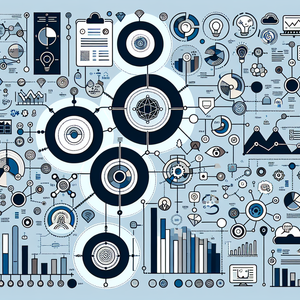Tech-Savvy Nursing: The Future of Home Health Care

Telehealth has revolutionized how healthcare is delivered, especially for home health care providers. By enabling virtual consultations, telehealth allows nurses to monitor patients remotely, assess their conditions, and provide guidance without necessitating an in-person visit. This is particularly beneficial for patients with mobility issues or those living in remote areas where access to healthcare services is limited. A notable example of telehealth's impact can be seen during the COVID-19 pandemic, when many home health agencies adopted telehealth solutions to maintain continuity of care while adhering to safety protocols. Nurses could conduct virtual check-ins, adjust medication plans, and provide education on managing chronic conditions—all from the comfort of the patient's home. This not only reduced the risk of infection but also empowered patients to take an active role in their health management. According to a study conducted by the American Journal of Managed Care, the use of telehealth during the pandemic resulted in a 50% increase in patient satisfaction ratings, highlighting its effectiveness in enhancing care delivery.
Wearable Devices: A New Frontier in Patient Monitoring
Wearable technology has emerged as a powerful tool in home health care, allowing nurses to monitor vital signs and health metrics in real-time. Devices such as smartwatches and fitness trackers can measure heart rate, blood pressure, and activity levels, providing valuable data that nurses can use to assess patients’ health status. Consider the case of a home health nurse who utilizes a wearable device to monitor a patient with heart failure. The nurse receives alerts when the patient's heart rate exceeds a certain threshold, prompting timely intervention. By leveraging this technology, nurses can detect potential issues before they escalate, leading to better patient outcomes and reduced hospital readmissions. A study published in the Journal of Medical Internet Research found that patients using wearable devices reported a 30% decrease in emergency room visits, underscoring the effectiveness of these tools in proactive health management.
Electronic Health Records: Streamlining Communication
The implementation of electronic health records (EHRs) has vastly improved communication among healthcare providers. For home health nurses, EHRs facilitate the documentation of patient assessments, care plans, and progress notes, ensuring that all team members have access to the most current information. This not only enhances collaboration but also reduces the likelihood of errors in patient care. For instance, a home health nurse can update a patient's EHR during a visit, allowing the physician and other specialists to review the latest developments in real-time. This seamless exchange of information fosters a team-based approach to care, ensuring that the patient receives comprehensive and coordinated support. According to a survey conducted by the National Association for Home Care & Hospice, 78% of home health agencies reported improved communication and coordination of care as a direct result of implementing EHR systems.
Enhancing Patient Engagement
Technology in home health care also plays a crucial role in engaging patients in their own health management. With mobile health applications, patients can access educational resources, track their symptoms, and communicate with their nurses directly. This empowerment encourages patients to take an active role in their healthcare journey, leading to improved adherence to treatment plans and overall satisfaction. Moreover, these applications can provide reminders for medication schedules or upcoming appointments, ensuring that patients stay on track with their health goals. A survey by the Pew Research Center found that 52% of smartphone users have downloaded a health-related app, indicating a growing trend toward digital health engagement. By fostering a sense of ownership over their health, technology not only benefits patients but also alleviates some of the burdens on nurses, allowing them to focus more on providing quality care.
The integration of technology in home health nursing is not merely a convenience; it is a necessity that enhances the quality of care provided to patients. Telehealth, wearable devices, and electronic health records are just a few of the innovations that are reshaping the way nurses deliver care in the home setting. As technology continues to evolve, it will undoubtedly provide even more opportunities for improving patient outcomes and increasing nurse efficiency. Embracing these advancements is essential for the future of home health care, allowing nurses to fulfill their roles as compassionate caregivers while leveraging the benefits of modern technology. In a world where healthcare is increasingly digital, tech-savvy nursing is paving the way for a brighter, more effective future in home health care. As the demand for home health services grows—especially among aging populations—the role of tech-savvy nurses will become increasingly vital in delivering high-quality, patient-centered care.
Telehealth Nurse Specialist
Telehealth service providers, hospitals with telemedicine programs, and home health agencies
Core Responsibilities
Conduct virtual patient assessments and follow-ups using telehealth platforms.
Develop and implement care plans based on remote evaluations and patient feedback.
Collaborate with multidisciplinary teams to ensure cohesive patient care.
Required Skills
Proficiency in telehealth technology and electronic health records (EHR) systems.
Strong communication skills for effective virtual interactions.
Experience in managing chronic illnesses or specific patient populations (e.g., geriatrics).
Home Health Monitoring Coordinator
Home health agencies, hospitals, and telehealth companies focusing on remote monitoring
Core Responsibilities
Utilize wearable devices to collect and analyze patient health data remotely.
Monitor vital signs and alert medical staff of significant changes in patient conditions.
Educate patients and families on the use of wearable technology and health apps.
Required Skills
Knowledge of health monitoring devices and data interpretation.
Familiarity with remote patient monitoring regulations and best practices.
Strong organizational skills to manage multiple patients’ data effectively.
Clinical Informatics Specialist
Healthcare systems, hospitals, and organizations specializing in health technology
Core Responsibilities
Implement and optimize electronic health record (EHR) systems for home health care.
Train nursing staff on EHR usage to improve documentation practices and patient care coordination.
Analyze data from EHRs to identify trends and improve patient outcomes.
Required Skills
Expertise in health informatics and EHR systems, including software like Epic or Cerner.
Strong analytical skills to interpret healthcare data and inform clinical decisions.
Excellent communication and training abilities.
Digital Health Engagement Coordinator
Health tech startups, health insurance companies, and home health agencies
Core Responsibilities
Develop and oversee mobile health applications to enhance patient engagement in home care.
Create educational content and resources to empower patients in managing their health.
Monitor user feedback and app performance to make iterative improvements.
Required Skills
Experience in digital health technology and user experience design.
Strong marketing and communication skills for outreach and patient education.
Ability to collaborate with healthcare providers to align app features with patient needs.
Remote Patient Care Manager
Home health agencies, telehealth organizations, and healthcare systems with home care services
Core Responsibilities
Oversee a caseload of patients receiving home health care, ensuring quality and continuity of care.
Coordinate with nurses and healthcare providers to address patient needs and concerns remotely.
Analyze patient data to identify areas for intervention and improvement.
Required Skills
Strong case management and organizational skills.
Familiarity with telehealth platforms and remote monitoring tools.
Ability to work collaboratively in a virtual environment.


